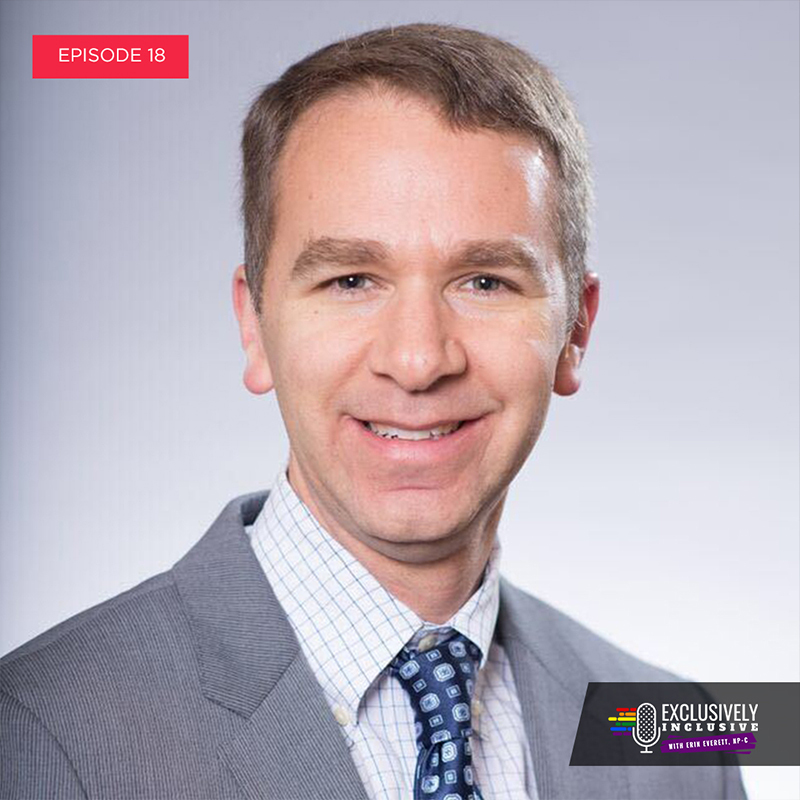
Episode 18
Colorectal Health Issues with Joseph Mareno, MD
In Episode 18, Erin Everett, NP-C, welcomes Dr. Joseph Mareno, a board certified Colorectal Surgeon to the podcast. During the episode, Erin and Dr. Mareno discuss the importance of Colorectal Screenings, as well as a wide range colorectal health issues including HPV, Condylomas, Anal Fissures, Hemorrhoids, Polyps, Colon Cancer, and Colonoscopies.
Podcast: Play in new window | Download
Subscribe: RSS
About This Episode
Episode 18 Transcript
Colorectal Screenings & Health Issues with Joseph Mareno, MD
Erin Everett: Hey, everybody, welcome back to Exclusively Inclusive. I’m your host, Erin Everett, nurse practitioner. On today’s episode, I’m really excited to introduce you to Dr. Joseph Mareno. Dr. Joseph Mareno is a board certified colorectal surgeon who was raised here actually in East Cobb, Georgia. He graduated from Berry College in ’99, and then went on to medical school at Emory University in 2003. He completed his general surgery residency at the University of California, San Diego.
Erin Everett: Dr. Mareno completed his fellowship in colon and rectal surgery at the Cleveland Clinic in Florida. Dr. Mareno practices all aspects of colon and rectal surgery. However, on today’s episode, we’re super excited to talk to him about anal fissures, hemorrhoids, anal HPV treatment, prevention, surveillance, and also screening colonoscopies and colorectal cancers. I met Dr. Mareno several years ago when I was working with him at the GI Lab at Piedmont Hospital.
Erin Everett: He’s a phenomenal person. He cares greatly about his patients. It’s very interesting to see him and talk to him as a provider myself now, but also just to see that he’s still continuing to provide excellent care and be a staunch advocate and a wonderful resource for not only his patients, but his colleagues. Without further ado, let me introduce you to Dr. Joseph Mareno.
Erin Everett: Tell us a little bit about yourself or a fun fact that maybe a lot of people don’t know about you or something interesting.
Joseph Mareno: Gotcha. Well, I grew up around Atlanta, so this is home, but then, I spent several years out in the promised land of Southern California and still somehow made it back here. I must really like it here.
Erin Everett: Right. Well, we’re glad that you decided to come back.
Joseph Mareno: No, it’s good to be back. Good to be back.
Erin Everett: Excellent. Just for our listeners, we’re going to be talking about a couple of different things today, but I think one of the things that you and I discussed would be most important to touch on first was anal HPV and its diagnosis, its surveillance and what it even is. Not everybody has condyloma associated with it, but I think that would be a great discussion to start with.
Joseph Mareno: Right. I agree, this is a very important topic that affects very many of my patients, and certainly something that I see here in the office really all the time. Oftentimes, patients are reluctant to discuss this kind of problem or are embarrassed to talk about it. I tried to reassure folks that, once again, this is something that’s actually quite common, and certainly something that I see and take care of all the time, quite frequently.
Erin Everett: It doesn’t just afflict men who have sex with men. Obviously, it can occur in all types of different demographics, depending on your sexual practices and your exposures.
Joseph Mareno: That’s correct.
Erin Everett: With that in mind, is your office administering any vaccines for that, the Gardasil vaccine?
Joseph Mareno:
A great question. We don’t give the vaccines here. Part of the reason is most patients tend to get that from their primary care provider.
Erin Everett: Correct.
Joseph Mareno: As the specialist, we tend to see folks who have developed issues or problems related to HPV. Most often, that’s a conversation that a patient had with their PCP. We certainly get asked all the time about the vaccine and whether or not it’s appropriate in certain situations and who should be getting it. We’re big advocates for it for sure.
Erin Everett: Do you feel like it holds value if the patient’s already presented with symptoms of HPV?
Joseph Mareno: That’s a really great question and really one to which we don’t know the answer to definitively yet. I never discourage a patient from getting it because the vaccine is specifically meant to help protect against, we’ll, say more risky subtypes of HPV. There are many different subtypes of the HPV virus.
Erin Everett: Correct.
Joseph Mareno: Some of them are more likely to cause problems than others. My general feeling is that if the vaccine can still protect you against one of those subtypes that could be more risky, and that you may not have, then it would be a good thing to do potentially. There’s obviously some costs associated with getting the vaccine, but otherwise very low risk. That being said, however, specifically, there’s no good guideline to say that it’s something that you should get once you’ve already developed issues related to HPV.
Erin Everett: I would agree with that. I mean, we often get asked the same question being in primary care and give a very similar answer. That means overall, the risk is low. It’s probably not going to hurt you if your insurance covers it, or you can afford it. You may have some benefit to getting that. But like you said, there really isn’t a real good guidelines on that, unfortunately.
Joseph Mareno: That’s right. That’s right. I know that from the most recent statement from our society, which is the American Society of Colon and Rectal Surgeons, does not specifically recommend giving the vaccine once symptoms or diagnosis of HPV has been confirmed. Again, I think the answer is we really don’t know whether or not someone is going to get some benefit from the vaccine.
Erin Everett: Absolutely. Well, that being in mind, as a primary care provider, obviously, I’m referring to you when I know a patient has symptoms of HPV, either they’ve come in with complaints of anal bleeding or other different issues going on sensitivities, or they’ve felt something, and so I’ve done an exam, and I send them over to your way. What can a patient expect next once they land in your office?
Joseph Mareno: Sure. Well, once again, like I said, it’s very common thing that we see and evaluate all the time, myself and all my partners here. We do our very best to try to make sure that patients are as comfortable as possible with what is certainly an uncomfortable thing that they have going on. I try to reassure them that this is something that we deal with quite frequently, and while I understand that they’re uncomfortable, it’s certainly not something that they need to be uncomfortable around with us.
Joseph Mareno: We do examine that area, the anal area. We do have always a chaperone with us when we’re doing the exam. That’s really for the comfort of the patient and the provider. What we typically do is examine the area directly around the anal opening or the perianal skin, and then try to do both a digital exam of the anal canal, and then to even take a look inside the anal canal for any lesions that might be present within the anal canal or in the lowest part of the rectum with a very short scope that goes in the anal opening.
Joseph Mareno: I also try to reassure patients that I’m not going to do anything that’s painful or too uncomfortable, that if something is, then we will figure out a different way to get the information that we need. But that being said, for the large majority of patients, well, the exam is certainly not, it may be a little uncomfortable. It’s nothing that’s painful or not tolerable. I also always try to tell patients before I do anything exactly what’s going to happen, almost just like I did there, so that there’s no surprises.
Joseph Mareno: The exam itself lasts probably less than two minutes in the majority of cases. It’s usually fairly straightforward. Patients do tolerate it very well afterwards.
Erin Everett: You say you’ve done an exam, and you’ve identified a condyloma on the external skin. How does that different from treatment for maybe a condyloma on the internal skin, on the internal flash?
Joseph Mareno: A great question. If we see a condyloma or an anal wart externally as opposed to being inside the anal canal, then that does open up some of our treatment options. Sometimes if it’s a very small lesion, that can be easily excised right in the office right at the time of the visit, and in a pretty straightforward and quick office procedure, or we may consider alternatives to excision, such as using some topical ointment type therapies that are also available.
Joseph Mareno: We really have a range of options available to us. I do think that particularly if this is a new diagnosis or something that someone has just recently noticed, I do like to obtain some pathologies so that we have a sense of exactly what is going on there. That way, we’ve also confirmed the diagnosis.
Erin Everett: Then you mean just sending the tissue off to a different type of specialist to make sure there’s nothing pre-cancerous or if all the tissue is benign?
Joseph Mareno: That is correct.
Erin Everett: Excellent.
Joseph Mareno: Yes. You got it. You got it right.
Erin Everett: From there, what kind of things are you doing to keep an eye on? Should patients come back to you every six months, or does that really depend? What are we talking about as far as surveillance? I know there’s a lot of literature out there, and there’s a lot of different opinions, medical opinions, both fact base and maybe not, but on whether we should be doing lasering. I know there are some providers here still lasering condylomas in their office.
Erin Everett: There’s the option for annual paps. There’s high resolution endoscopy. I know there’s other techniques. What kind of things is your office utilizing, and what are your best recommendations?
Joseph Mareno: Well, that’s a great question. I think and I try to tell folks as well as that the reason why we want to do something about these lesions, and the reason why we want to figure out whether or not there’s any of these precancerous changes going on in these areas is because we know that problems can develop associated with HPV. Even anal cancer is a risk with HPV, which is why we’re doing these procedures and doing this monitoring. What I tell folks is, “Look, we want to do something that’s reasonable.”
Joseph Mareno: We don’t want to say, “Well, we’ll see you back in 10 years and hopefully, everything’s been fine.” We also don’t want to make someone uncomfortable with having to come to the office very frequently, and having super frequent exams or anything like that either. I use a couple of different kinds of findings to guide my approach. One is just how extensive or how problematic have the HPV been for that patient? Then also, what degree of changes in the cells related to that HPV has been seen by the pathologist if we’ve taken biopsies in the past?
Joseph Mareno: Are there any precancerous changes going on? If there are, how significant have those changes been? I use all of those things to help guide our approach in monitoring the area. For many, many patients, it could even be just a simple and quick exam, maybe even once a year. Then for others, if changes are more significant, then perhaps we look more frequently maybe every six months or so, something like that. You mentioned anal pap smears, which I think are a great adjunct in our ability to monitor that area.
Joseph Mareno: I think in my practice, what I typically do is plan to do an anal pap test or pap smear at least on an annual basis. Sometimes, that’s not always true. If we’ve done recent biopsies, then there may not be the need to do another pap smear within a short timeframe after that, but I want to make sure that at least on an annual basis, we’ve got some assessment of that anal area in terms of the cells, not just my visualization of the area, but in terms of the cells as well. The anal pap smear is a great way to help us out with that.
Erin Everett: Awesome. It’s not that invasive, correct?
Joseph Mareno: That is correct. That’s correct. Yes. Basically, a little brush that goes in the anal opening and twirls around for a few seconds collecting cells in that area, and that’s it.
Erin Everett: Great. For patients, it’s just something that they can do in a routine follow up with you. It doesn’t need to be in a procedural area.
Joseph Mareno: Absolutely. That’s right.
Erin Everett: Awesome.
Joseph Mareno: Done right in the office, and very quick, just really a part of the routine exam. That’s correct.
Erin Everett: I do have a lot of patients ask me about high resolution anoscopy. They’ve either heard about it or one of their friends has had it done. What’s your stance as far as that? Is it better, the same as far as surveillance? Is it just how when some provider picks their technique that they prefer?
Joseph Mareno: Right now, high resolution anoscopy is definitely another great technique that we have in our ability to monitor these areas and monitor for HPV related changes. High resolution anoscopy can also be done in an office setting, and not require a trip to the hospital or special procedural area. It’s a bit more expensive than a typical office exam. It’s a procedure done with, again, a scope that goes into the anal opening, and then special dyes applied to the cells in the area, and then essentially, you have a magnified view of that area through a special scope.
Joseph Mareno: Any cells or areas that appear abnormal are then biopsied right at the time of the procedure, done again right in the office. It is also just yet another tool in our ability to continue to monitor that area for HPV-related changes. I think different providers do different techniques. I, again, think that the most important thing to do is to do something to keep an eye on that area. HRA or high resolution anoscopy is another tool that also does, again, give us some pathology results so that we have a better sense of what are those cells actually doing under a microscope.
Joseph Mareno: Yet another great tool, I think it’s, again, all of these different methods that I’ve mentioned all work together to give us a good way to monitor things.
Erin Everett: Excellent. Well, thank you for that explanation. I think that clears up a lot of murkiness for a lot of listeners because all these terms get flown around, but unless you actually have an established relationship with a colorectal provider, it’s hard to sometimes know where to get your good information.
Erin Everett: Now that we’ve discussed a little bit about anal HPV and the treatment, and of course, their surveillance, I guess we should talk about, too, its risks associated with anal cancer and other signs and symptoms of that.
Joseph Mareno: Sure. You hit the nail right on the head is why are we doing anything about HPV in the first place? That goes back to the risk of anal cancer. One thing I try to reassure my patients with HPV is that anal cancer remains a rare GI cancer overall. There’s a lot of cancers that we’ve talked about, and I’m sure that people have heard about colon cancer, rectal cancer. Colon and rectal cancer are different than anal cancer. Anal cancer is actually significantly less common than colon and rectal cancer.
Joseph Mareno: That being said, the incidence of anal cancer does seem to be increasing in the U.S., so it is important for us to keep an eye on and to monitor for this. You asked about some risk factors for anal cancer. Probably the main risk factor for anal cancer is HPV infection. In fact, that makes anal cancer an interesting cancer, and that it’s related to a virus, which is HPV. Despite that, certainly, only a very small percentage of patients who have HPV in the anal area would ever develop anal cancer, which is the good news.
Erin Everett: For sure.
Joseph Mareno: Yes. That’s why it’s so important for us to keep an eye on things down there. As far as symptoms of anal cancer specifically, the most common symptom is actually … symptoms rather are actually pain and bleeding. Certainly, those symptoms need to be evaluated by a specialist to rule out more serious problems. I often tell patients bleeding and pain down there are not a hemorrhoid until someone has looked and told you for sure.
Erin Everett: Told you.
Joseph Mareno:
Obviously, there’s commercials all over TV for hemorrhoid therapies. Everybody’s heard at least the term hemorrhoid even though you may not know exactly what it is. Everything that goes on down there is a hemorrhoid to a lot of lay people.
Erin Everett: A lot of folks.
Joseph Mareno: Those symptoms in particular need to be thoroughly investigated. Particularly when they’re persistent, then those symptoms should really be checked out. That’s why, because they can indicate actually a problem going on that’s more serious than hemorrhoids.
Erin Everett: Right. Well, I mean, but that could be a good segue too into talking about Hemorrhoids and anal fissures too-
Joseph Mareno: Sure.
Erin Everett: … because, like you mentioned, a lot of people complain about bleeding and anal pain and often assume it’s a hemorrhoid. However, it may be something different, but it also might be a hemorrhoid and an anal fissure.
Joseph Mareno: That’s right.
Erin Everett: A lot of people don’t know the difference between the two. Some of the symptoms are so similar, it’s hard for even providers like myself with limited exam tools to be able to decipher, so of course, they end up in your office.
Joseph Mareno: That’s right. Hemorrhoids can also hide out up on the inside of the anal canal as well. As you pointed out, it’s not necessarily an area that can even be easily examined unless you have a particular instrument to do that. To start with hemorrhoids, hemorrhoids basically refer to the blood vessels, the blood vessel barring tissue that lines the anal canal and even the skin right at the anal opening. At times for whatever reason, sometimes, that tissue can become a little more lax or a little puffy.
Joseph Mareno: That area is lined really… Particularly up on the inside of the anal canal, it is lined really with the same kind of lining that lines your lower lip, let’s say, a moist mucous membrane, not tough like skin. When that tissue gets a little puffy or a little enlarged, then it can very easily get irritated. That can result in bleeding, and irritation or swelling in that area. That’s oftentimes what folks are talking about when talking about internal hemorrhoids anyway.
Joseph Mareno: Then another issue, hemorrhoid related, that we see quite frequently is there’s an external hemorrhoid that’s become swollen because of essentially a blood clot that’s developed in that hemorrhoid tissue externally. Patients will often describe a lump that seems to be a little painful down there, almost like a little grape or a little olive. Oftentimes, that’s a hemorrhoid issue as well.
Erin Everett: Those are both things that you can address, one probably more so in the office and the other depending on severity. You do have to take that to a procedural area, correct?
Joseph Mareno: That can be the case, although I would say even internal hemorrhoids, we can deal with most frequently even in the office. We have procedures. The most common procedure that we would do for an internal hemorrhoid is a procedure called hemorrhoid banding or rubber banding, which some folks have heard of at times is a very straightforward simple office procedure that patients tolerate very, very well and can be very effective. We have a lot of treatment options for those kinds of issues.
Erin Everett: Awesome.
Erin Everett: The difference too between a hemorrhoid and an anal fissure, probably most… Of course, we know the pathology behind it, but I guess for our listeners, if you wouldn’t mind explaining that and then how the treatment options there might differ.
Joseph Mareno: No, of course. A fissure is a little bit different. A fissure is also something that can cause pain and bleeding, and really more significantly pain typically. A fissure is really like a tear that can develop right at the anal opening or the skin of the anal lining. Then you can imagine that would be pretty painful. It’s just a really bad place to get a cut or a tear. There’s really no way around it. You have to go to the bathroom, and they can cause pretty significant discomfort.
Joseph Mareno: A fissure is treated a little bit differently. We have some good medical treatment. There’s a particular ointment that we use to help fissures to heal. Then really, the most important thing in treating both fissures and hemorrhoids is trying to work to improve the consistency of the stool that’s going by that area. That’s very important for healing both of those problems. The most common things that I tell patients to do or to make sure that they’re getting plenty of water and staying well hydrated during the day, and then getting a good fiber supplement like a Metamucil or Benefiber to really help that stool consistency to just be as perfect as possible for healing of that area.
Joseph Mareno: Ultimately, there is an operation. As you mentioned, the procedural areas there, there are operations of course for patients for both fissures and hemorrhoids, which we do quite frequently. They’re both outpatient type procedures, but we find that a great deal of our patients with these issues, we can even manage without operations. But certainly, those patients who have more severe conditions of both severe hemorrhoids or severe fissure can greatly benefit from surgical treatment of that area as well.
Erin Everett: Absolutely. Well, that’s really great information. I think that clears it up for a lot of people. It’s nice sometimes just for other people to hear it being so openly talked about so that they feel less uncomfortable coming to you and speaking about it. I think that alone is super helpful.
Joseph Mareno: Sure.
Erin Everett: One other thing too that I wanted to talk to you about was of course, colon cancer, colorectal cancer. This obviously is applicable to everybody listening, not just those part of the LGBTQ community. One thing that I’ve noticed as obviously as a primary care provider is that the guidelines have lowered their screening age to around 45. Of course, it can happen earlier than that. You have what we call the unlikely cases, but you’re glad you caught them.
Joseph Mareno: Absolutely.
Erin Everett: What’s your take on that on the increasing rates of cancer of people in their 40s, and what are your recommendations for screenings as far as colorectal cancers go?
Joseph Mareno: Absolutely. You’re right, the incidence of colon cancer in younger folks does seem to be increasing. We really don’t know why that is. It doesn’t seem to be though that we’re just doing a better job of diagnosing them. There does actually seem to be an increase. Again, I think that goes back to what I said earlier about people have symptoms that aren’t resolving, aren’t getting better quickly, again, bleeding or nominal pain in the case of colon or rectal cancer, really should be checked out by their doctor. They should come see you, and tell you about these issues so that they can be thoroughly investigated.
Joseph Mareno: The fact that we’re seeing these cancers develop in younger patients makes it even more important for us not to just assume that persistent bleeding or abdominal pain is related to something very benign, but we have to consider these other possibilities. You asked specifically about screening. That’s correct. Because of the fact that we are diagnosing these cancers in younger folks, the American Cancer Society recently lowered the recommended age at which we should be starting screening to 45 from 50.
Joseph Mareno: It was 50 prior to that. What that means is anyone even without any family history of colon or rectal cancer, and without any symptoms, should have a screening colonoscopy by the time they’re 45. That doesn’t mean that then you have to start having a colonoscopy every year or anything like that. It just means that that’s when you need to have your initial exam, and then the determination of how frequently or how often you should have colonoscopy after that is based on the findings at the time of that initial colonoscopy.
Joseph Mareno: For most folks, it’s something that needs to be done every five to 10 years, depending on the findings at the time. That’s what I tell my patients as well. Those are certainly the guidelines that I follow. There are patients who may be patients who have a history of colon or rectal cancer in their mother or father or sibling or patients who have had particular medical problems, all sort of colitis, say, who need to start having colonoscopies even earlier than 45.
Joseph Mareno: But for the general population, that is the recommendation. Then also to go… To circle back, again, to the importance of thoroughly investigating persistent symptoms, we do colonoscopies frequently on patients who are even younger than that, who we’re seeing for these problems like ongoing rectal bleeding or other issues. Just because you’re younger than 45 doesn’t mean that you can’t have a colonoscopy or shouldn’t have a colonoscopy.
Joseph Mareno: In fact, again, we do colonoscopies on younger patients, but frequently just to investigate symptoms.
Erin Everett: You’re talking about more of a diagnostic colonoscopy, but for those without symptoms, everybody should report to a surgeon, colorectal surgeon or GC specialist for their screening colonoscopy starting age 45.
Joseph Mareno: That’s correct. You got it.
Erin Everett: I’m very partial to the colonoscopy, obviously, given my background and experience working with people like yourself, but also, just the data and the validity of it and how effective it is at reducing colorectal cancers.
Joseph Mareno: Absolutely.
Erin Everett: But of course, for people who are really hesitant, which I’ll fight my hardest to convince them into colonoscopy, but at some point when you have to raise that white flag, Cologuard is an option. Is that something that you’re familiar with? Obviously, us as primary care, we order that. But just for clarification, and for my patients who might be listening to hear it from someone other than myself about how that tool works and how it might be effective or not in diagnosing.
Joseph Mareno: Absolutely. Of course, Cologuard is one of these newer options. For those who don’t know, Cologuard is a test. Basically, it’s a mailing kit. You may have seen this advertised on television. Essentially, mail a stool sample back to a lab, and the test is specifically looking for particular DNA changes in the stool that can be associated with either colon polyps or colon cancer. I think that Cologuard may be an option for certain patients. There are… I know you in your work in primary care have come across the patient from time to time who is just adamantly against having a colonoscopy for whatever reason.
Joseph Mareno: It may be a valid reason. I think the Cologuard may be an option for that patient. If they say, “Look, I am not going to have a colonoscopy, but I am interested in some form of screening,” then Cologuard may be an option. However, my only caveat with that is certainly that they must understand that if the Cologuard test does show an abnormality, then the next step is a colonoscopy.
Erin Everett: Is colonoscopy, yeah.
Joseph Mareno: Exactly.
Erin Everett: It’s like, “Oh, we meet again, colonoscopy.”
Joseph Mareno: That’s right. That’s right. If someone says, “Well, I’m not having a colonoscopy under any circumstance,” then they would have to understand that if their Cologuard result is abnormal, that a colonoscopy would be the next step. That is something I try to remind folks.
Erin Everett: I mean, it’s a good selling point too as far as… There’s a lot of mental anguish that could go on too from a positive Cologuard test to a negative colonoscopy, because you may still have a negative colonoscopy after that.
Joseph Mareno: That’s right. Absolutely. That brings up another important point about the Cologuard test is that colonoscopy is still a better screening tool. While Cologuard may diagnose a problem, colonoscopy not only diagnosis problems like even small polyps which can easily be dealt with and are not harmful is done right at the same time as the procedure. Cologuard may diagnose those, but it obviously does not do anything about them. Colonoscopy is still… For most people, colonoscopy is still a better screening test.
Erin Everett: I would agree with that.
Erin Everett: For patients who don’t have any anal concerns or anal rectal complaints or abdominal pain or anything like that, it’s still reasonable for them to come and seek out a colorectal surgeon like yourself for a screening colonoscopy. Is that correct?
Joseph Mareno: Yes, absolutely. Absolutely. We do our share of screening colonoscopies and are always happy to do so.
Erin Everett: Okay, so you don’t have to be having a medical complaint to be able to see a colorectal surgeon. You can get your screening done with you, which is excellent.
Joseph Mareno: Yes, that’s correct. That’s correct.
Erin Everett: Then if a patient was to have a polyp that was not able to be removed via colonoscopy or some other issue or unfortunately diagnosed with a colorectal cancer, what is your role in their care after that colonoscopy?
Joseph Mareno: Sure. For patients like you mentioned to, let’s say, maybe have a larger colon polyp that can’t be easily dealt with by colonoscopy alone or who may have unfortunately been diagnosed with a colon cancer, then oftentimes, the next step in treatment is to have surgery to remove that section of the colon that either has that large polyp or cancer inside. Certainly, that is something that I do quite frequently. I’m very involved in that type of care.
Joseph Mareno: Surgery has the chance to be curative for those problems. Obviously, that’s one of the great parts of the job is to be able to help somebody out like that with a serious issue, even to cure it.
Erin Everett: I’m sure that’s incredible. Especially too, I think, for continuity of care, it’s also a great option to be able to start the process with the procedures during the colonoscopy, and also finish if you unlikely have to get surgery with the same person who is doing your procedure is really nice.
Joseph Mareno: That’s right. That’s something that we can offer them.
Erin Everett: Absolutely. We’ve talked about ways to diagnose and treat, but do you have any expert opinions on colon cancer prevention?
Joseph Mareno: That’s a really great question as well. Colon cancer tends to be associated with what we call a Western diet, which is a diet that’s lower in fiber, and higher in fats and proteins. Again, I think one of the most important things that we can do for a lot of reasons is try to eat at least a well balanced diet. Make sure you get your greens, and maybe even taking a fiber supplement might help as well. I think that’s probably the most important thing to do.
Joseph Mareno: Unfortunately, there’s no one thing that we can tell folks that if they avoid, their risk will be zero. But I think, also, we know that smoking is certainly associated with an increased risk. ECD maybe as well, that’s a little less certain. I think we gotta generally try to eat a healthy diet. Get some fiber in your diet. Taking a good fiber supplement every day is probably a good idea, may help you to avoid some of those other anal complaints as well like hemorrhoids and fissures. Exercise.
Erin Everett: You don’t have any strong opinions, then, on red meat or anything, because a lot of people ask me about that. I found the data to be somewhat unclear, but aside from of course, avoiding sodium nitrates and nitrates, but…
Joseph Mareno: No. I mean, I do think that, again, I mean, we know that in a Western society where we tend to eat a lot more red meat than say the Eastern world, if you will, the rates of colon cancer are higher. There probably is some connection with that. I try to tell folks all the time, though, that probably having a steak for every meal is probably not the best thing to do. There’s maybe a lot of health reasons for that, so not just colon cancer risk. Certainly, having a steak now and again, at least in the majority of circumstances, isn’t going to dramatically increase your risk individually.
Joseph Mareno: Unfortunately, there’s no one diet that we can eat to eliminate risk, but certainly, I think, trying to live a healthy lifestyle, eating a balanced diet and being active, getting exercise, those are all important things, avoiding things like smoking, which we know creates all kinds of cancer risk. Those are probably the most important things that you can do.
Erin Everett: Of course, we’re preaching about those lifestyle aspects to prevent all kinds of different diseases, including diabetes and heart disease, so even more a motivation to do it for your colon health.
Joseph Mareno: Right. You need it beyond the cancer world.
Erin Everett: Right, but it makes sense. It does. It makes complete sense, especially having a high fiber diet to keep things moving and out of your system, so it can’t sit there for too long.
Joseph Mareno: Sure. That’s right. That’s right. Maybe protective as well. That’s exactly right.
Erin Everett: Excellent. Unfortunately, I wish we had more solid answers, but these things, I mean, I still to this day, I’m like, “Why? Why do people in their 30s get these horrific colon cancers that aren’t genetically linked?” I guess, for the most part, we’ll never know.
Joseph Mareno: Well, yeah. I call those the lightning strikes, if you know what I mean. Those are the ones that you’re walking outside on a clear day, and get struck by lightning. I mean, there’s no good answer. I mean, I think, very oftentimes, it’s a single mistake and replication of a cell and one single cell in the colon. That just becomes propagated. Those are the ones that we don’t have a great answer for often. They’re very difficult to handle.
Erin Everett: For sure. Do you have anything else you wanted to chat about or any final comments or topics that you wanted to make sure we included?
Joseph Mareno: I think we’ve covered a good broad range of topics here. I think my messages would be, again, is don’t ignore symptoms. Don’t assume that something going on is something like a hemorrhoid until it’s actually been checked out by either your primary care provider or a specialist. Remember to get your screening colonoscopies done as needed. That’s very important as well of course. Also remember that these kinds of issues while nobody enjoys necessarily talking about them, especially when it’s something that’s going on with you, we see these problems and we deal with these problems literally on a daily basis.
Joseph Mareno: We’re more than happy to help out with with these kinds of issues. We want patients to feel very comfortable discussing these issues with us. We try to work as hard as we can to make people feel that way. We feel like we do a good job of that here. I just want people to get things checked out, even if they’re uncomfortable in the area, and make sure everything is doing well.
Erin Everett: Well, I think that’s awesome. I think it’s so easy for providers like us to forget how uncomfortable it can be. Because sometimes when I’m talking to patients, and I’m asking all these questions about their stool, they’re getting embarrassed. They’re like, “Well, I took a picture. Do you want to see it?” I’m like, “Of course, I want to see it. This will be so helpful.”
Joseph Mareno: That’s right.
Erin Everett: They’re like, “Mind is blown.” It’s like, “This is not embarrassing at this point. It’s just science and medicine.” I can attest to your ability to make patients feel comfortable in your amazing bedside manner, to not which you practice but also others in your group. You’re a valuable resource to Atlanta and my patients and Dr. Smith’s patients. We’re lucky to have you. I really appreciate you taking the time coming on the show. It’s really important to us.
Joseph Mareno: Well, thank you so much for saying that. That’s very, very kind of you.
Erin Everett: Of course.
Joseph Mareno: Congratulations on this fabulous podcast.
Erin Everett: Thank you.
Joseph Mareno: It’s so nice. No, it’s so nice to see, and provide a lot of great resources for your patients. Been my pleasure knowing you all.
Erin Everett: All right, thank you so much. Remember everybody, stay fierce and live your truth.
In episode eighteen of Exclusively Inclusive, Erin Everett, NP-C, interviews Dr. Joseph Mareno of Atlanta Colorectal Surgery, PC. Dr. Mareno is a board certified Colorectal Surgeon with extensive experience screening, diagnosing, and treating a variety of Colorectal health issues.
During the episode, Erin and Dr. Mareno discuss the importance of colorectal screenings and related colorectal health issues. Among the colorectal health issues discussed are HPV and its link to anal cancer, as well as diagnosing and treating more common issues such as Anal Fissures, Hemorrhoids, and Polyps.
Later in the episode, Dr. Mareno highlights the increase in occurrence of colon cancer in younger patients, and the American Cancer Society’s update of its Colorectal cancer screening guidelines in 2018, lowering the recommended screening age to 45 from 50. Dr. Mareno goes on to emphasize the need for patients to not ignore symptoms of persistent bleeding or abdominal pain as being hemorrhoids or something else benign, and to have these symptoms evaluated by a physician.
Rounding out the episode, the two further discuss Colonoscopies and frequency of necessary colorectal screenings, Cologuard testing as a possible alternative to colonoscopy, surgical options to remove polyps and colorectal cancer, and ways to reduce the risk of colorectal health issues by eating a balanced diet, exercising, and avoiding smoking.
Episode Links:


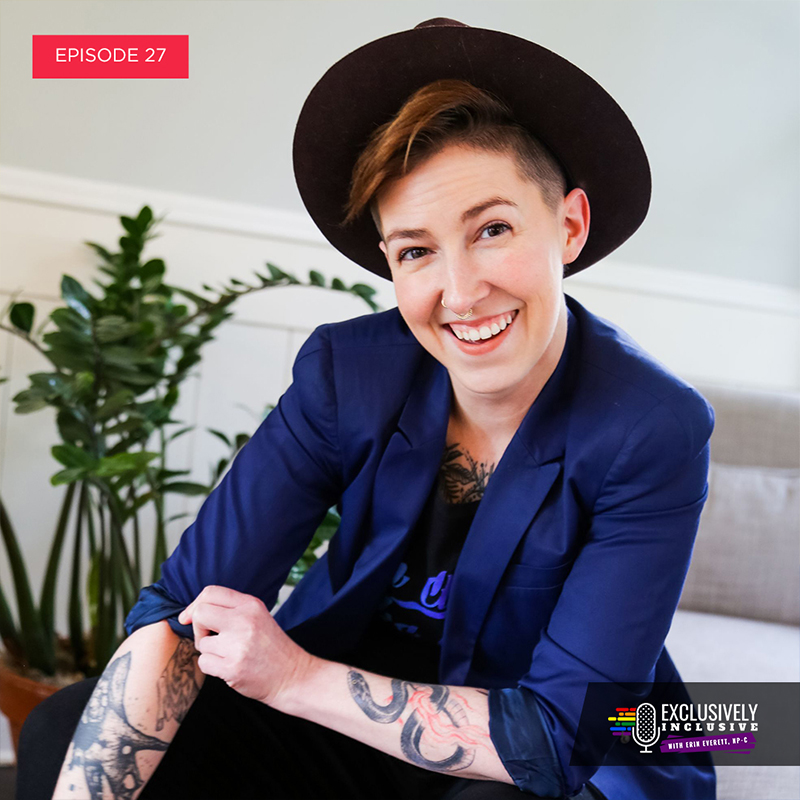
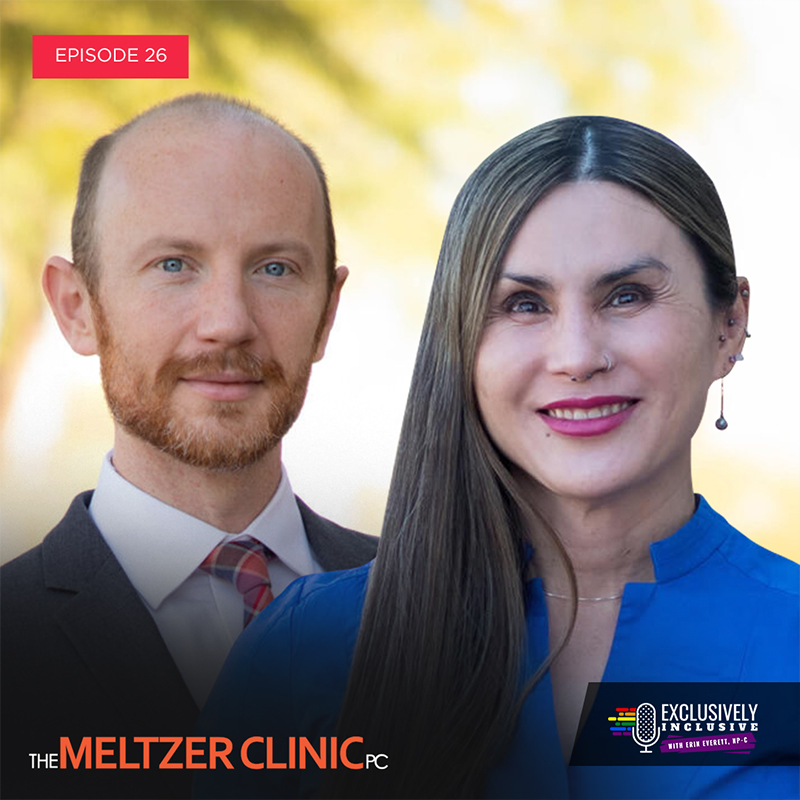

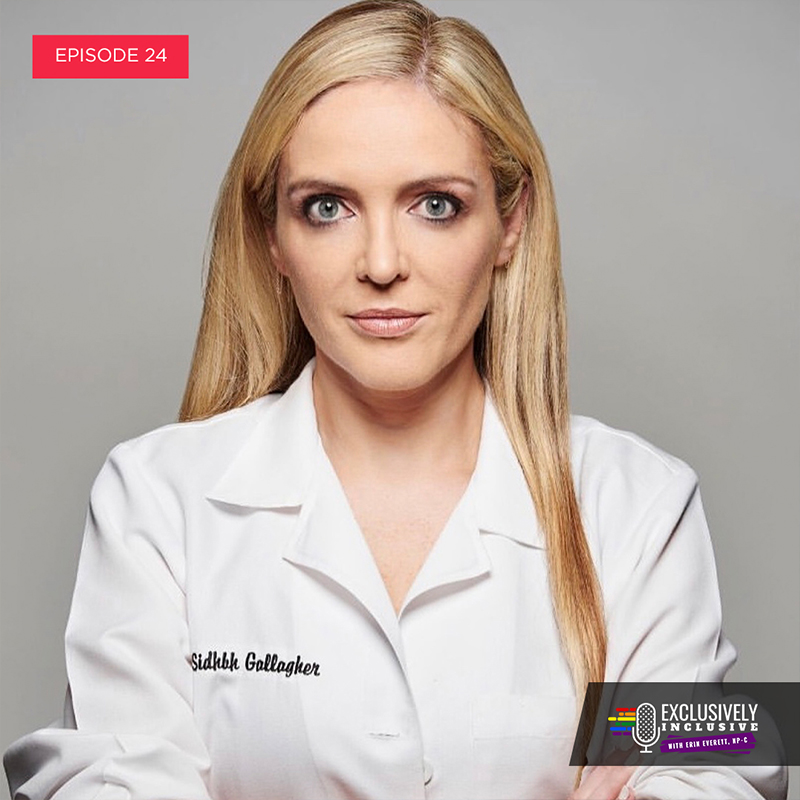
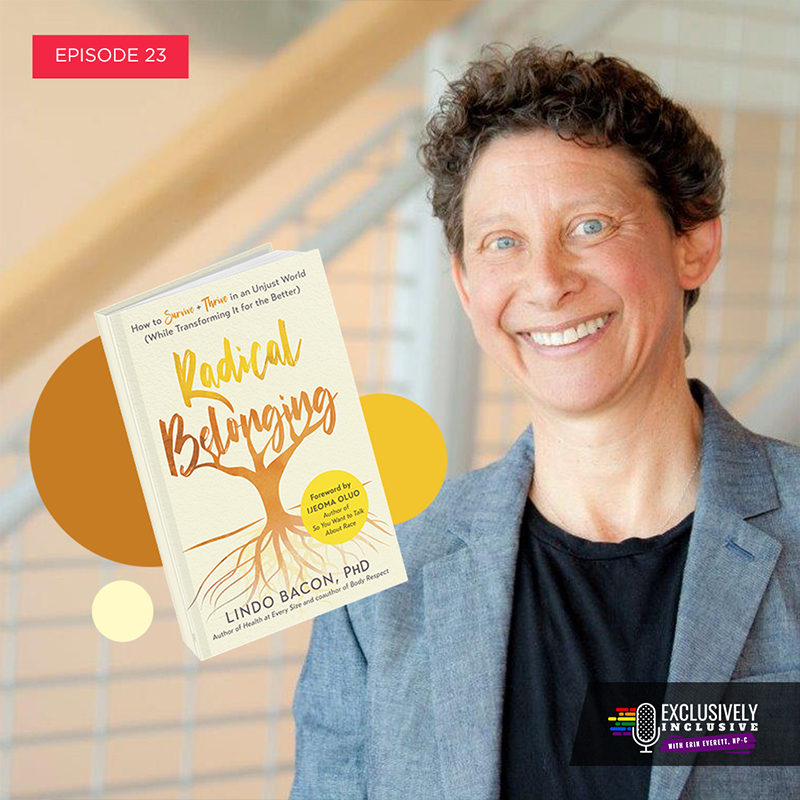

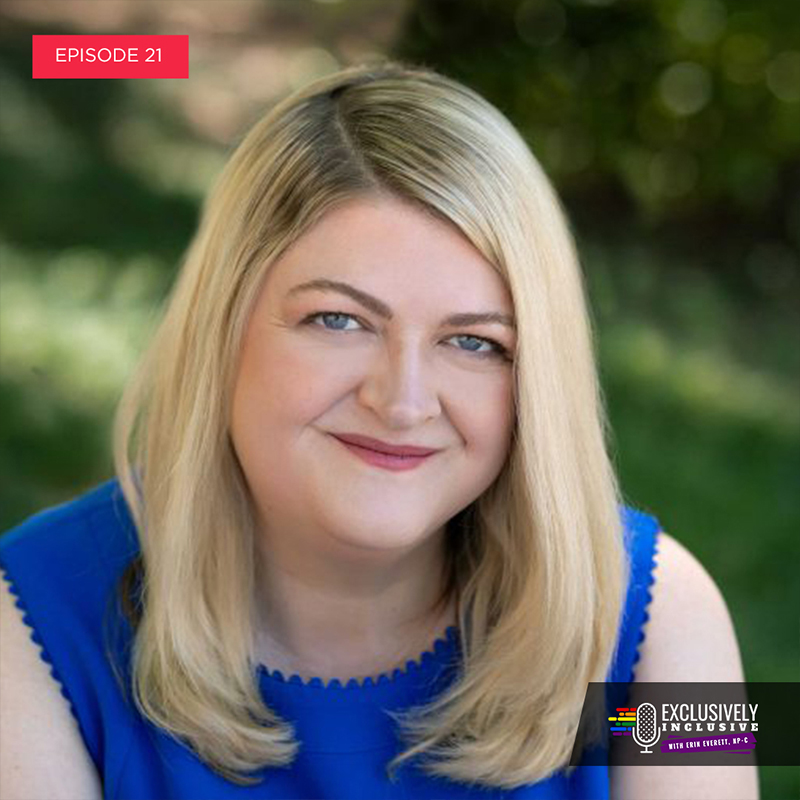
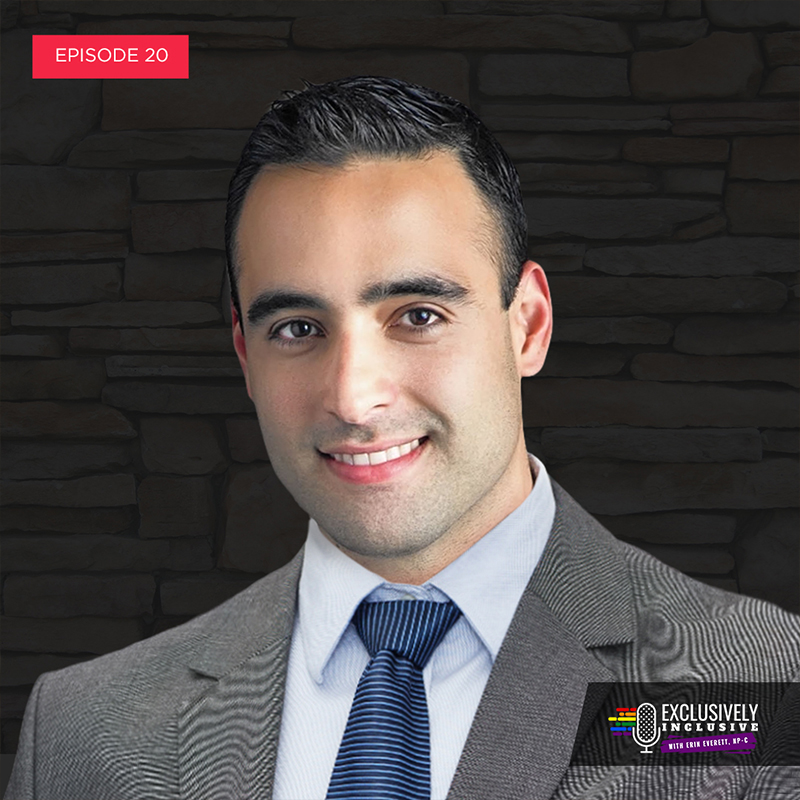

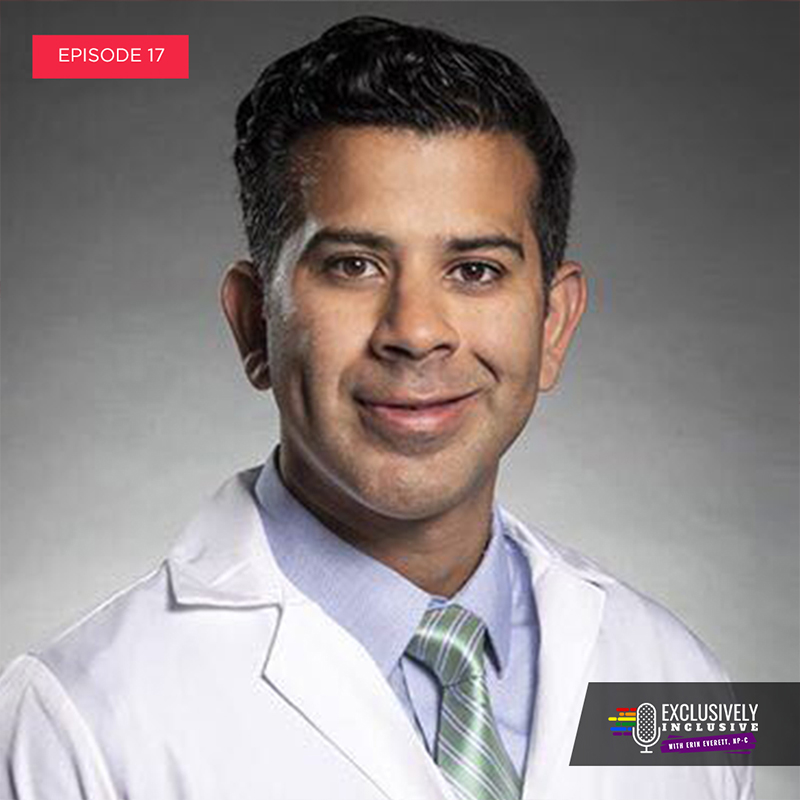
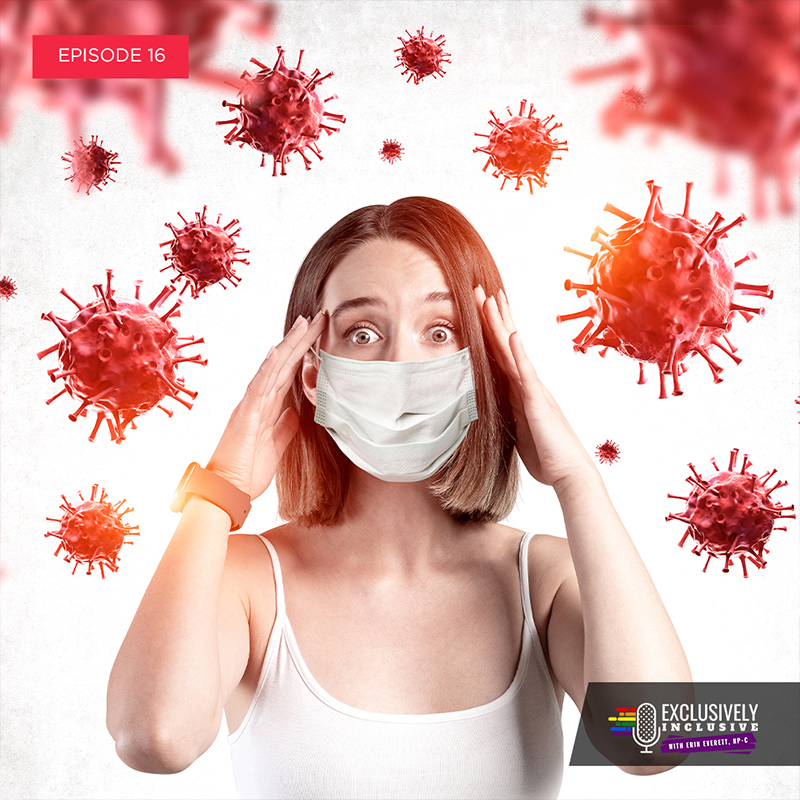
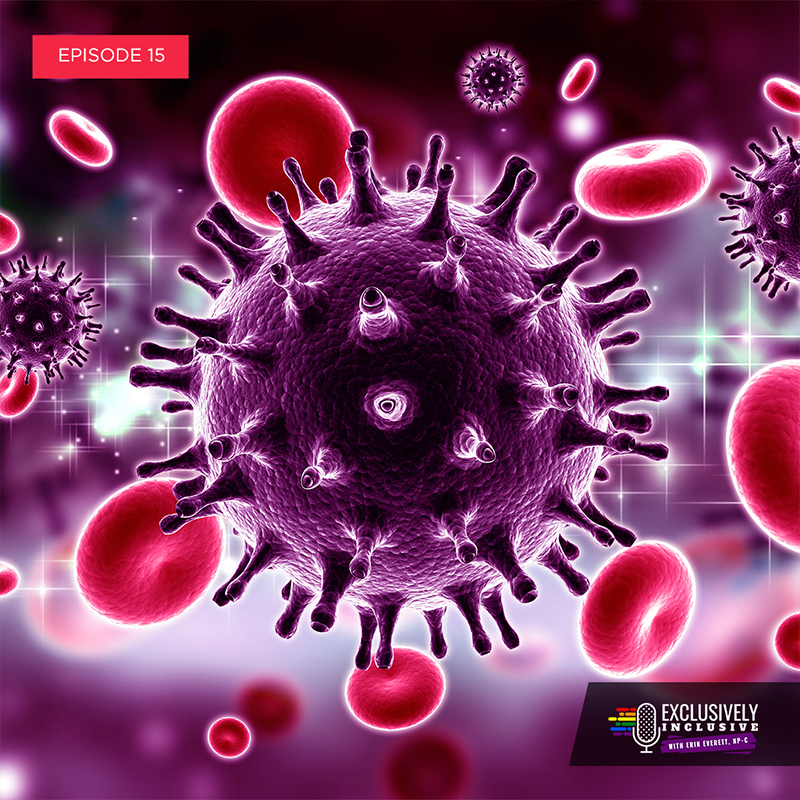
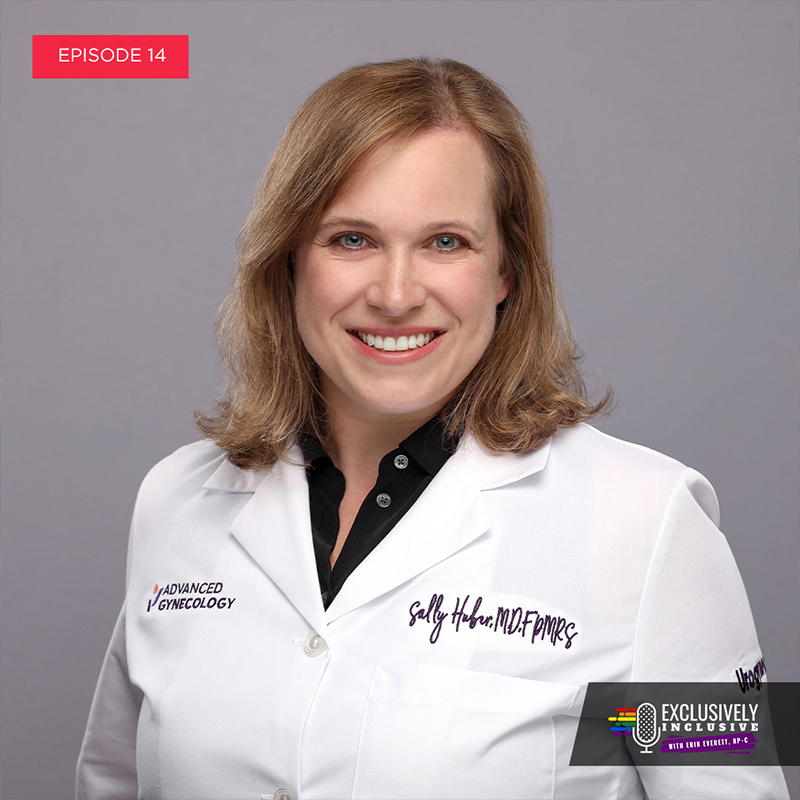
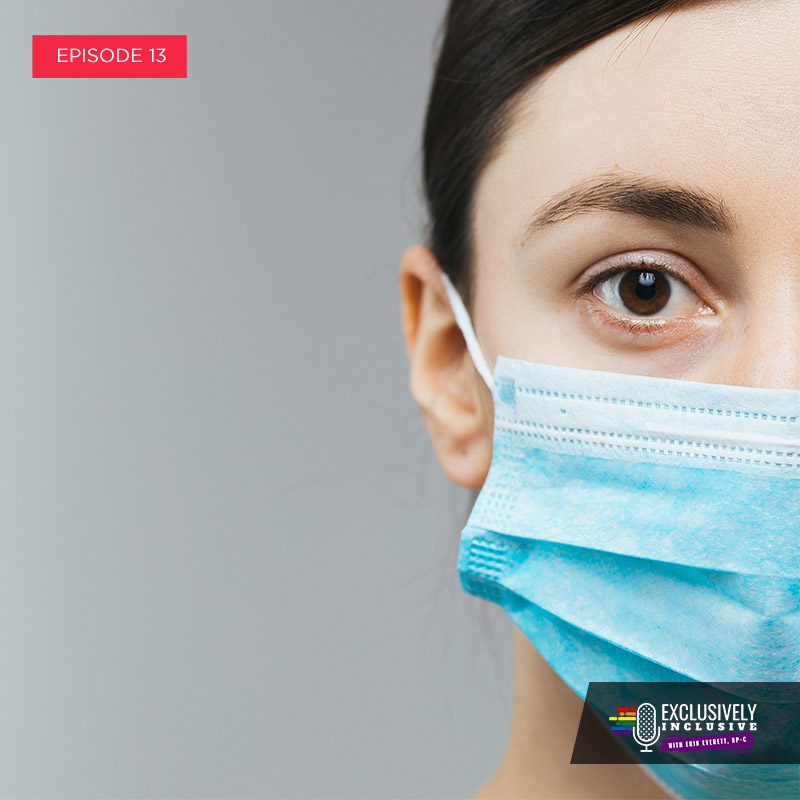
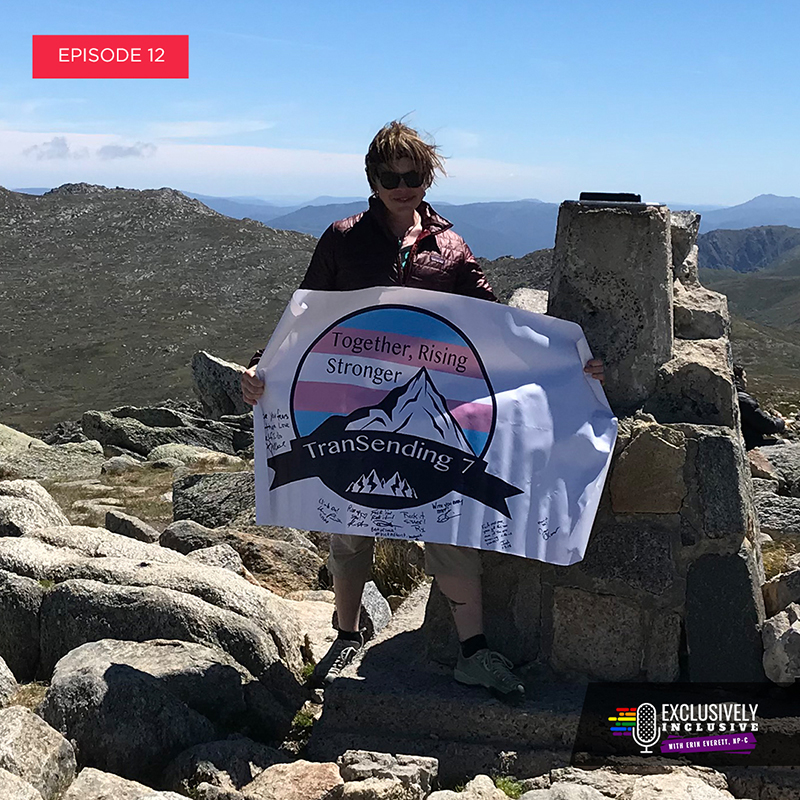

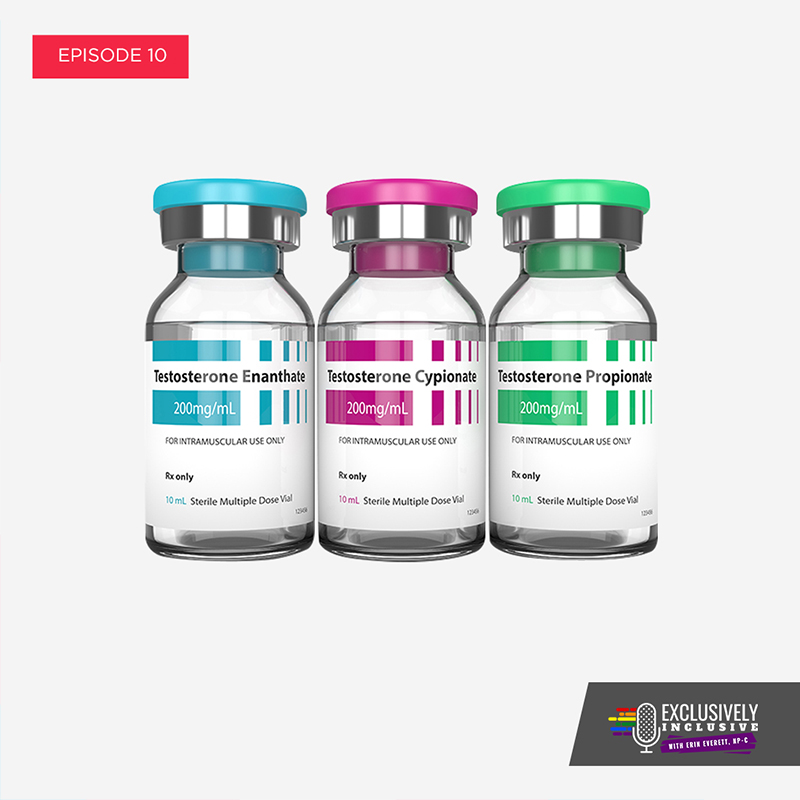
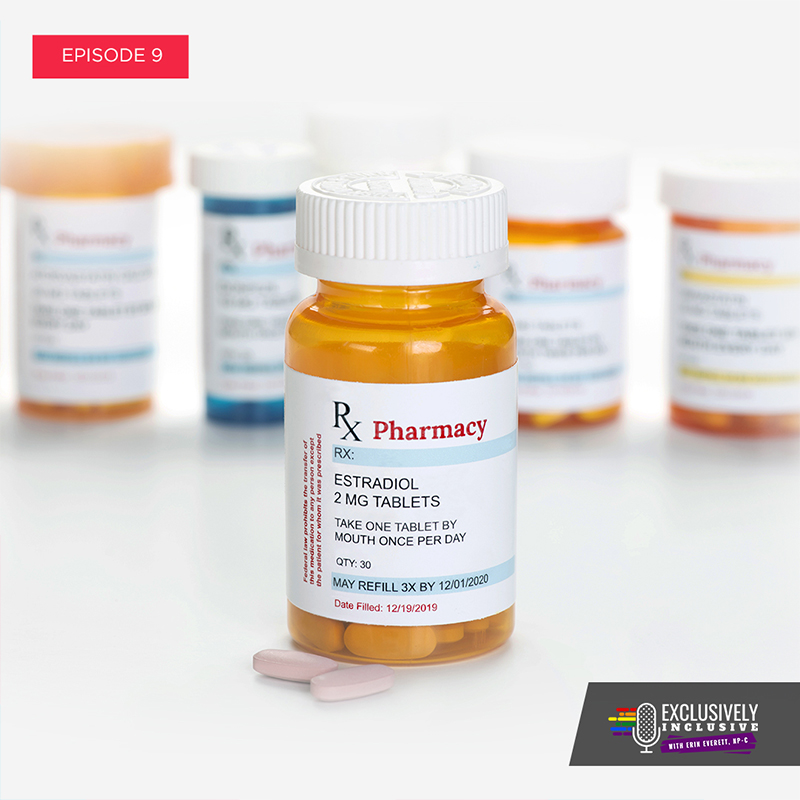
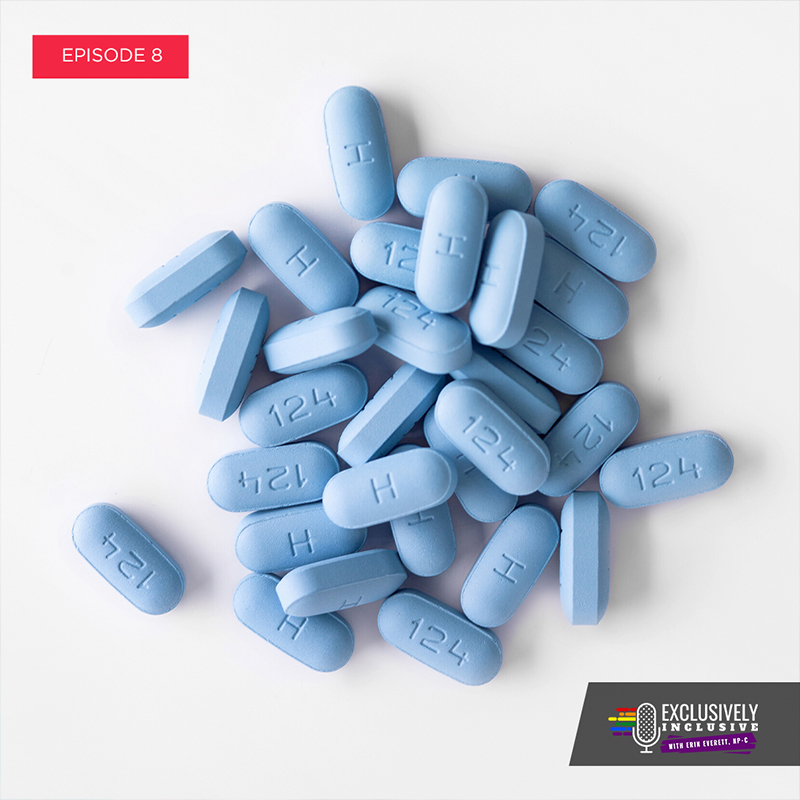
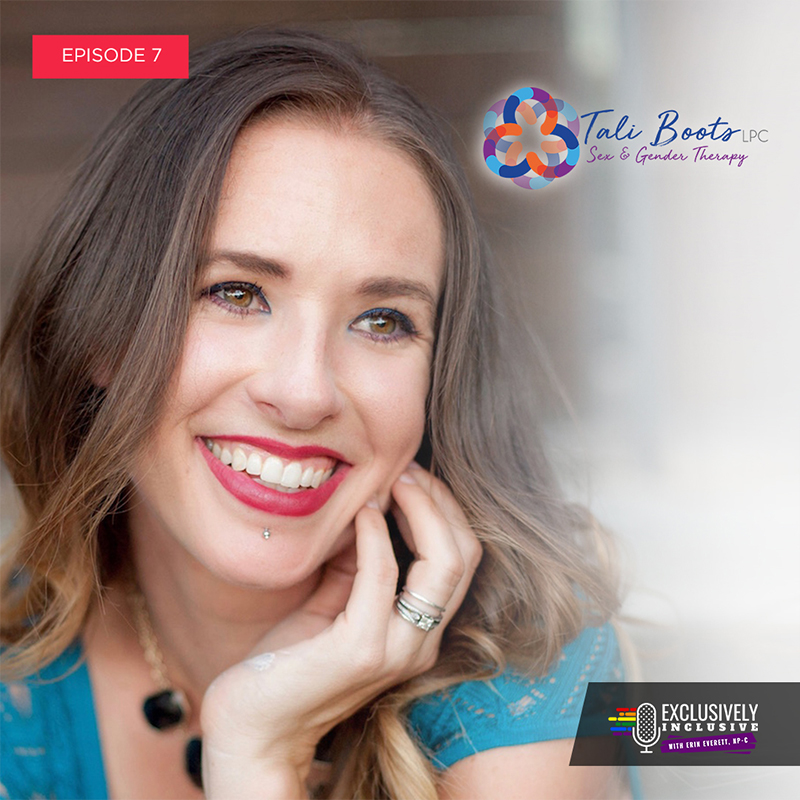






You won’t find one better than Dr. Mareno! He cares, he knows, and he does what his patients need.